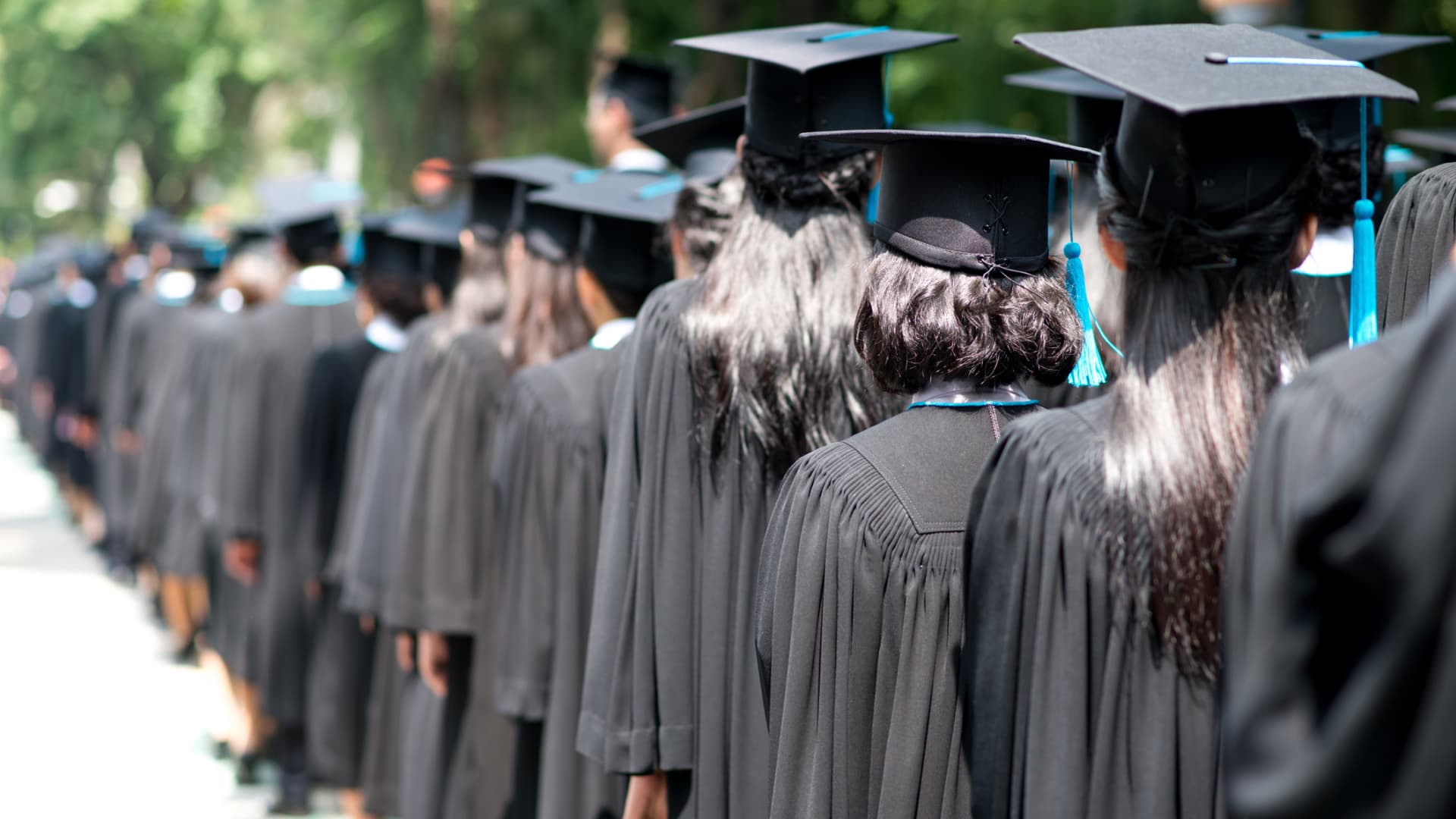If student loans were dischargeable they would cease to exist because most people would complete their education and then declare bankruptcy. People who take student loans almost certainly exit college with negative net worth.
Make them dischargeable x years later, maybe 10 or 15.
The problem is with public / federal loans. There’s little incentive for the government to limit loans to responsible borrowers (the government is incredibly incompetent with taxpayer money). Abuse would be rife. Better to just end federal loans and leave it to the private lenders. Then make the those loans dischargable in bankruptcy. The private lenders would need to actually assess the risk of the borrower. Universities would be forced to charge a market rate for tuition. Many useless university administrators and DEI commissars might have to be let go. Winning all around.
That would make them cease to exist.
There is little they can do to assess the risk of the borrower--students have little if any record to go on. And the vast majority of graduates come out of school with no income and no assets--clear candidates for bankruptcy.
If you want to make the lenders care: Look at what I proposed earlier--payments capped as a percentage of income above the poverty line. You fund a worthless degree, it's very unlikely you'll get repaid.
Or scrap the entire stupid model, and fund education in ways that doesn't leave its recipients in debt at all.
That instantly resolves all the difficulties you are identifying here.
Just pay for education out of general revenue (hey, look, primary and secondary education are usually funded that way, and many nations also fund tertiary education that way, so perhaps it's not impossible!), and the increase in educated citizens will provide an economic boost that more than compensates for the expense.
Free market capitalism is an excellent way to ensure the optimum distribution of scarce resources. But it's not the ONLY way, and for non-consumables - such as investment in education or infrastructure - it's not even close to being the BEST way.
It works for cars, TVs, and mobile phones. That doesn't make it a good option for education, power grids or highways.
It's not the fucking 1980s anymore, and this daft Reagan/Thatcher economics whereby everything needs to be funded through free market capitalism, or not at all, is breaking our society. Infrastructure is breaking down and not getting the necessary maintenance or replacement; Education is going the same way. Fucking stop already. It doesn't work.
"User pays" isn't a universally sensible model, particularly where the beneficiaries aren't limited to the users.
I use my car; Nobody else benefits from my use of my car; So I should pay the costs of having a car. User pays.
I use my education; My employer benefits from my use of my education; My friends, family and neighbours benefit from my use of my education; If I invent something widely useful, or come up with a widely useful idea, then total strangers benefit from my use of my education. So all these people should pay the costs of educating me. Beneficiaries pay.
Income Tax payers are a pretty good proxy for the beneficiaries of societal goods such as education and infrastructure. Their income is largely dependent upon the existence of those societal goods, and it's reasonable to ask them to pay in proportion to the income thus enabled.
Why would I take out a huge and crippling loan to benefit a bunch of strangers? I would have to be incredibly young, naïve and gullible, and/or to have spent eighteen years being indoctrinated to believing that it was the only way for me to "succeed", before I would fall for such an obvious scam.
And if I did fall for such a scam, society would have a moral obligation to bail me out (and to punish the scammers).
I don't want to "make the lenders care". I want to see them penalised for their hugely immoral behaviour, and forced to pay compensation to their victims; but I will settle for the elimination of their
business model scam, so nobody else will be victimised by it.

www.cnbc.com


